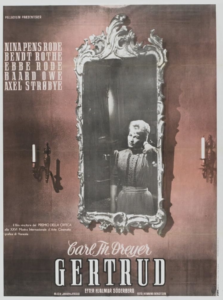|
Genres, Themes, Actors, and Directors:
- Carl Theodor Dreyer Films
- Feminism and Women’s Issues
- Historical Drama
- Infidelity
- Love Triangle
- Marital Problems
- Play Adaptations
- Scandinavian Films
Review:
Carl Theodor Dreyer’s final film was this slow-moving, contemplative adaptation of Hjalmar Söderberg’s 1906 play. While it’s now generally highly regarded — earning a spot in 1,001 Movies You Must See Before You Die — critics at the time of its release were much more divided and/or derisive. Before saying more, it seems worth citing 75-year-old Dreyer himself, as quoted in James Steffen’s article for TCM:
Declaring it to be “a film about words,” Dreyer said of his basic approach to Gertrud: “What interests me – and this comes before technique – is reproducing the feelings of the characters in my films… The important thing … is not only to catch hold of the words they say, but also the thoughts behind the words. What I seek in my films, what I want to obtain, is a penetration to my actors’ profound thoughts by means of their most subtle expressions. For these are the expressions … that lie in the depths of his soul. This is what interests me above all, not the technique of the cinema. Gertrud is a film that I made with my heart.”
Fair enough. With all that in mind, viewers will have to decide for themselves what they think of a ~2 hour film with less than 90 overall shots, consisting primarily of measured dialogue between two people who rarely look at one another. It’s a stylistic choice that of course any director should feel free to make, but one that risks alienating and/or boring viewers. At least Gertrud herself is a consistent and insistent feminist protagonist; she is clear on what she wants from life, and unafraid to share this with her husband:
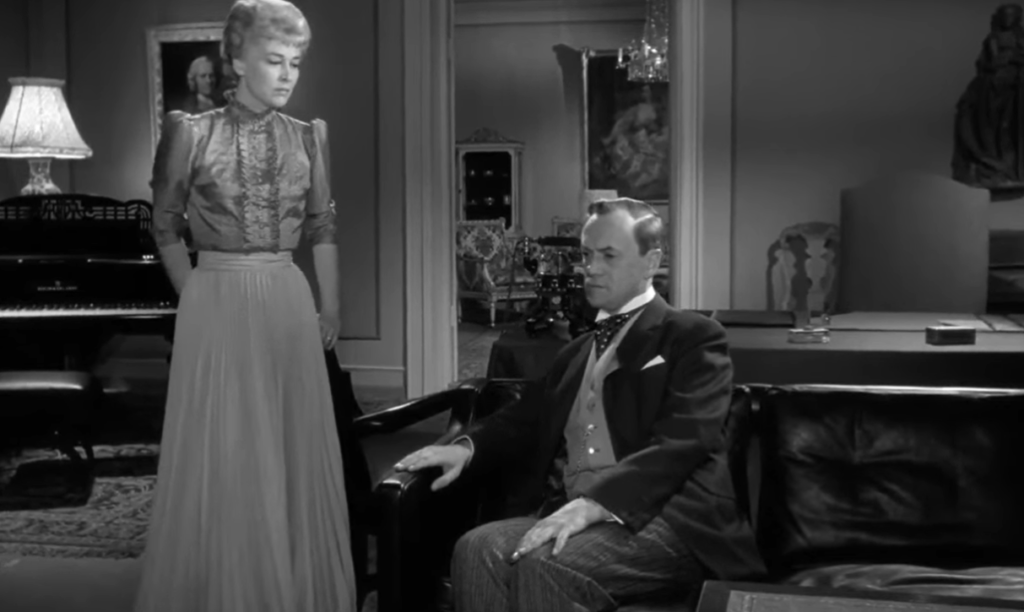
… her callow new lover:
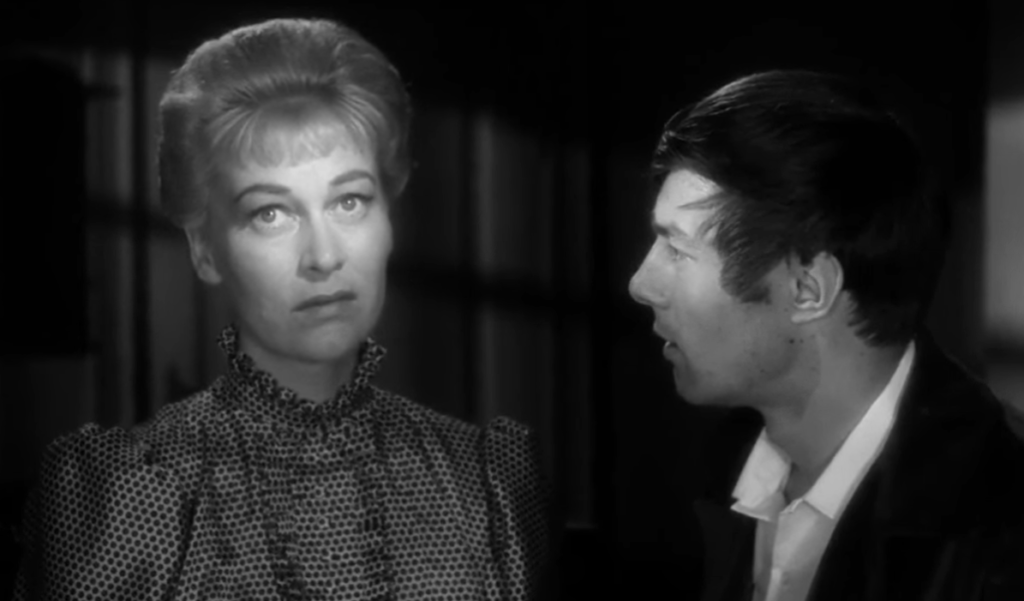
… or her loyal former flame.
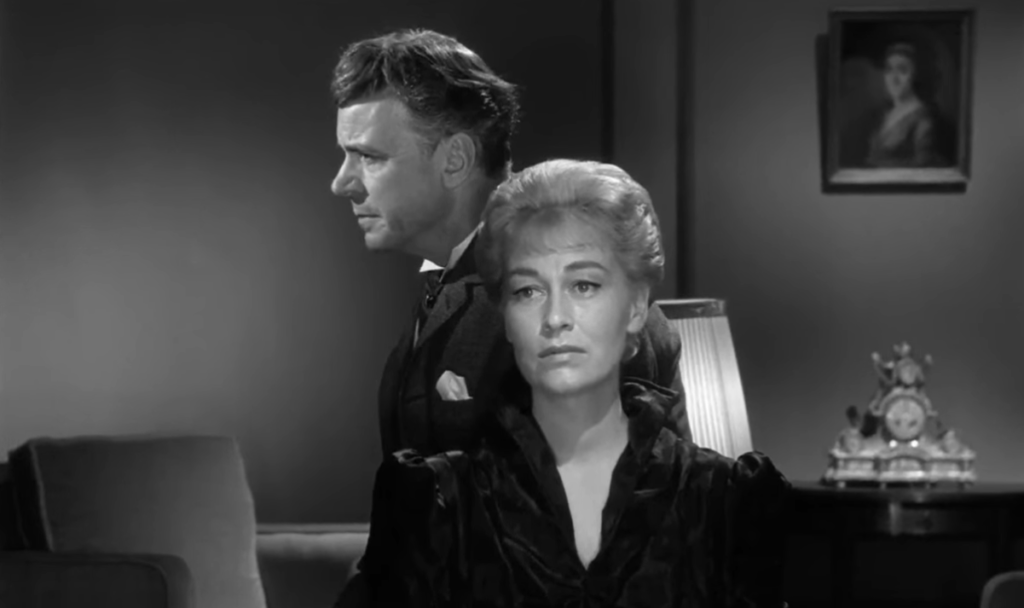
Notable Performances, Qualities, and Moments:
- Henning Bendtsen’s cinematography
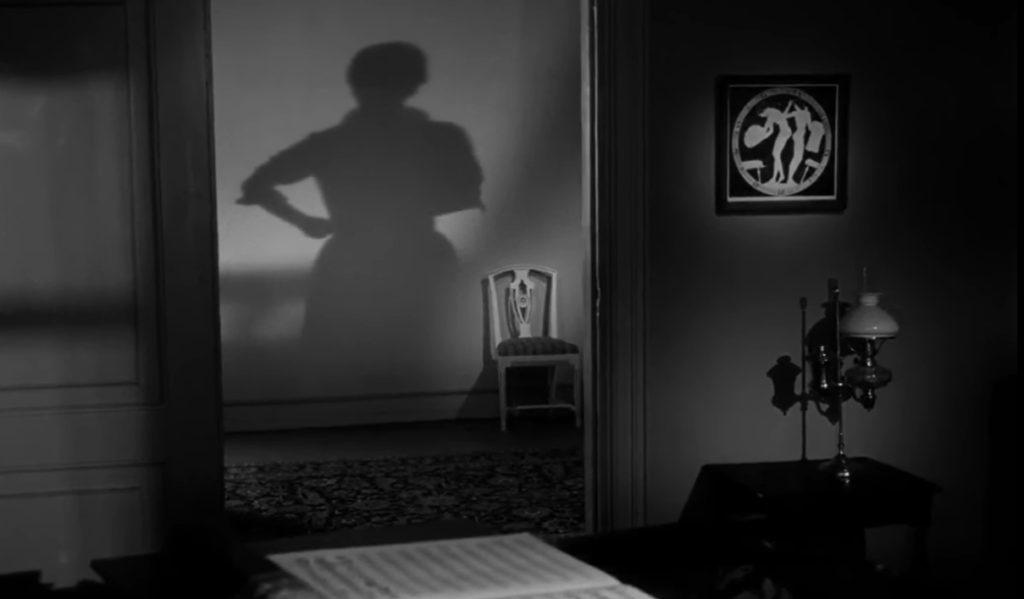
Must See?
No; you can skip this one unless you’re a Dreyer fan. Listed as a film with Historical Importance in the back of Peary’s book.
(Listed in 1001 Movies You Must See Before You Die)
Links:
|
